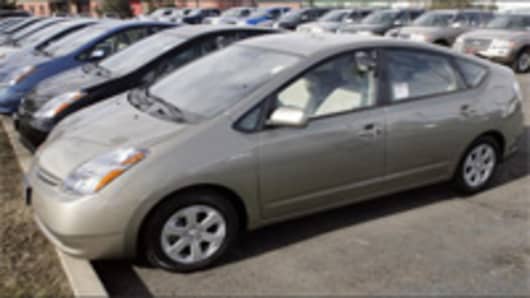This afternoon, a new survey of car buyers is hammering home a point I've heard about, and blogged about,many times in the past: When gas prices hit a certain level people will turn away from big trucks and SUVs and migrate into hybrids and smaller, more fuel efficient vehicles.
My reaction: Yes, increased gas prices change our attitudes, but increasingly, the price needs to move higher and higher to spur us into action.
According to Edmunds', when gas hits a national average of $4.00 a gallon:
--Hybrids would receive a 502 percent increase in customer consideration.
--Interest in traditional midsize SUVs, large SUVs and large trucks would decrease at rates of 35 percent, 34 percent and 26 percent, respectively.
--The luxury car and luxury SUVs segments, although containing some of the least-efficient models on the market, would sustain modest decreases of 15 percent. Researchers explain that buyers considering these models typically have enough money that a rise in the price of gasoline of just $1 over current levels isn’t enough to dissuade them from purchasing a luxury model.
--Brands perceived to be more fuel efficient would receive more consideration, despite the realities of their products’ actual fuel efficiency ratings.
Will people really change their habits at $4.00 a gallon? I'm not so sure. I have seen similar stories in the past suggesting a similar move when gas would hit $2.00, $2.50, or $3.00 a gallon. And yes, while there has been a shift towards hybrids and more fuel efficient cars, we have also become accustomed to higher gas prices.
This explains why I often hear from new car buyers: "Yeah, if the cost of gas moves much higher, I will by a compact car." And yet, some of those people still drive mid-size SUVs.
The bottom line in my opinion is that it will take a major gas price spike, and then a high price for a long time, in order to get a dramatic shift into Hybrids and smaller rides.
FYI--For more background on the fuel price elasticity study, please visit Edmunds’ AutoObserver.com.
Questions? Comments? BehindTheWheel@cnbc.com



